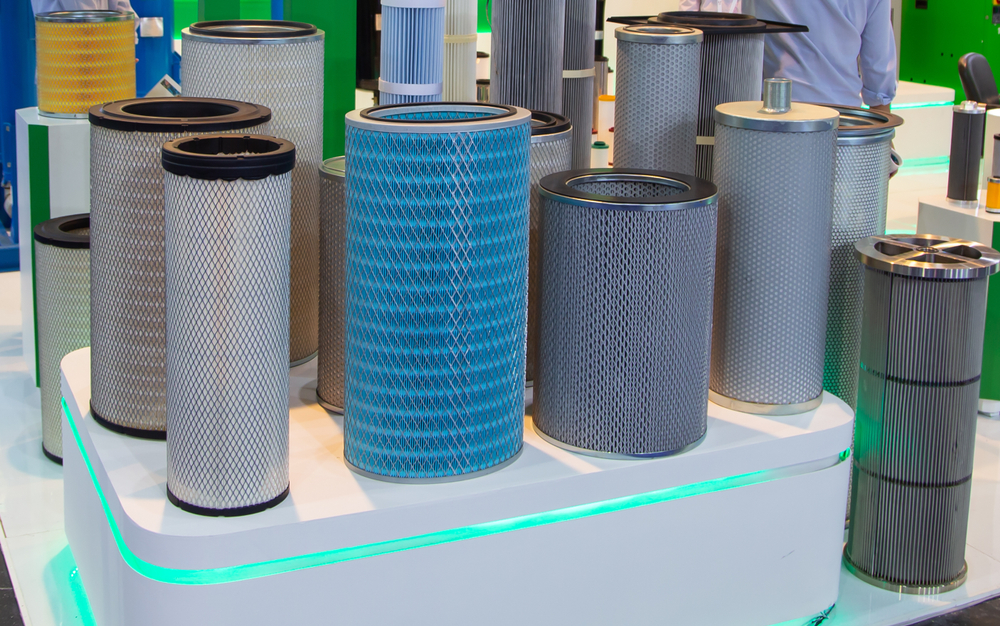
Hydraulic systems are crucial components in a wide range of industries, from manufacturing to construction. These systems rely on hydraulic fluid to transfer power and control the movement of machinery. However, over time, contaminants such as dirt, debris, and water can find their way into the hydraulic fluid, leading to reduced system efficiency and potential damage. This is where hydraulic filters come into play. In this blog post, we will discuss the importance of hydraulic filters for fluid conditioning and offer tips for maintaining your hydraulic system to prevent contamination.
Importance of Hydraulic Filters for Fluid Conditioning
Hydraulic filters play a vital role in maintaining the cleanliness and quality of hydraulic fluid in a system. These filters are designed to capture and remove contaminants that can cause damage or reduce the efficiency of the system. By trapping particles such as dirt, metal shavings, and other debris, hydraulic filters help to prevent wear and tear on system components, extend the lifespan of the hydraulic fluid, and ensure smooth and reliable operation of the machinery.
Without proper filtration, contaminants can circulate throughout the hydraulic system, causing abrasive wear on vital components such as pumps, valves, and cylinders. This wear can lead to costly repairs and downtime for maintenance, ultimately impacting the productivity and profitability of your operations. By regularly replacing and maintaining hydraulic filters, you can protect your system from contamination and preserve the integrity of your hydraulic fluid.
Tips for Maintaining Your Hydraulic System
In addition to using hydraulic filters for fluid conditioning, there are several other steps you can take to maintain the performance and longevity of your hydraulic system. Here are some tips to help you keep your system running smoothly:
Regular Inspections: One of the most important steps you can take to prevent contamination in your hydraulic system is to conduct regular inspections. Check for leaks, signs of wear or damage to hoses and fittings, and any unusual noises or vibrations. By catching potential issues early, you can address them before they escalate into more serious problems.
Change Hydraulic Fluid: Over time, hydraulic fluid can break down and become contaminated. It is important to change the hydraulic fluid according to the manufacturer’s recommendations to ensure optimal performance. Additionally, be sure to use the correct type of hydraulic fluid for your system to prevent compatibility issues.
Monitor Fluid Levels: Keep an eye on the fluid levels in your hydraulic system and top up as needed. Low fluid levels can lead to air entering the system, causing cavitation and reduced performance. Regularly check the fluid level and quality to prevent damage to system components.
Maintain Cleanliness: Keep the area around your hydraulic system clean and free of dirt and debris. This will help prevent contaminants from entering the system and causing damage. Regularly clean the exterior of the system and surrounding area to maintain a clean and efficient working environment.
Follow Manufacturer Guidelines: It is important to follow the manufacturer’s guidelines for operating and maintaining your hydraulic system. This includes using the correct filters, fluid, and maintenance procedures. By adhering to these guidelines, you can ensure the optimal performance and longevity of your system.
By following these tips for maintaining your hydraulic system, you can prevent contamination and ensure the smooth operation of your machinery. Implementing a regular maintenance schedule and investing in quality hydraulic filters for fluid conditioning will help protect your system from damage and extend its lifespan. Remember, a well-maintained hydraulic system is essential for maintaining productivity and efficiency in your operations.
Summary
Hydraulic filters are essential for fluid conditioning in hydraulic systems. By capturing and removing contaminants, these filters help to prevent wear and tear on system components, extend the lifespan of the hydraulic fluid, and ensure smooth operation of machinery. In addition to using hydraulic filters, it is important to follow the tips outlined in this blog post for maintaining your hydraulic system to prevent contamination. By taking proactive steps to keep your system clean and well-maintained, you can protect your investment and maximize the performance of your hydraulic equipment.
Got Questions About Industrial Machinery? Let Us Help!
Hydraulic Power Sales, Inc. is local manufacture, distributor, and service provider of hydraulics equipment based in Cordova, California. Since 1985, we have been providing hydraulic repair services, hose assemblies, and sales to businesses throughout northern California. We manufacture hydraulic engine systems and hydraulic cylinders while supplying other hydraulic equipment. We want to be your one source for all of your hydraulic/pneumatic needs. Give us a call today!

